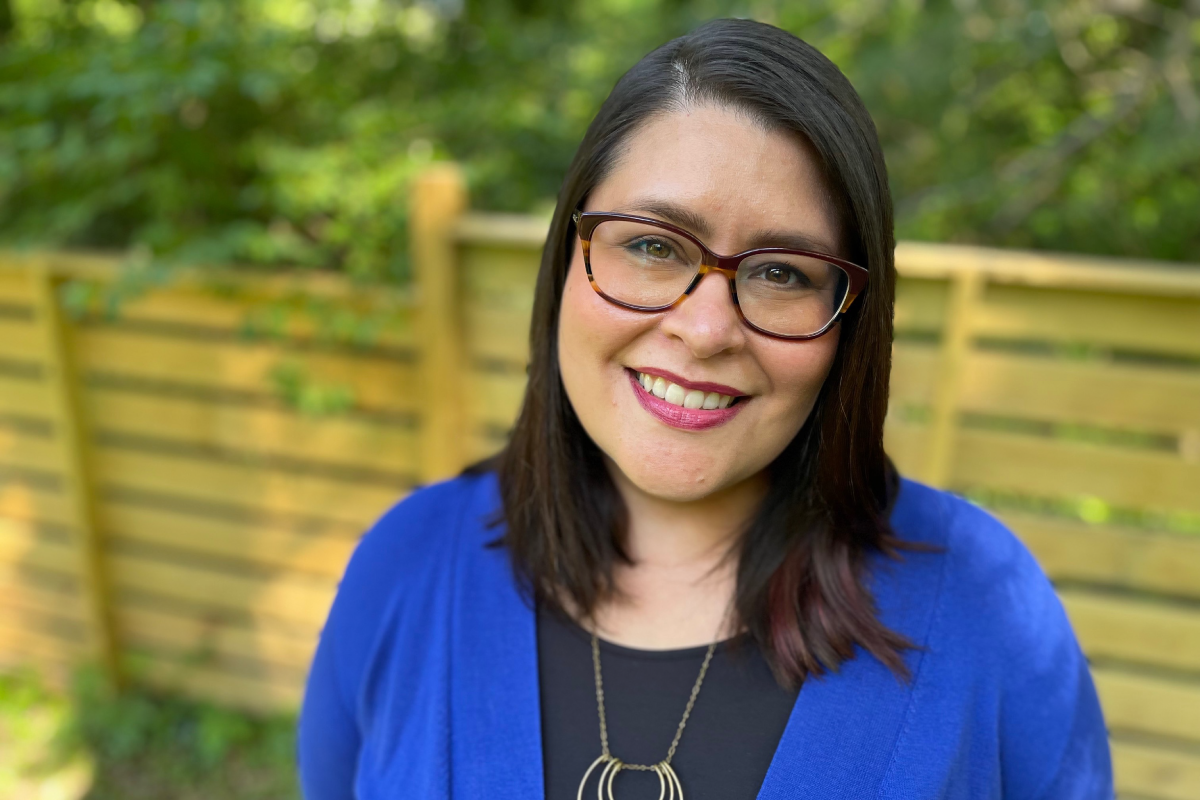This is part of a series that will share real stories of people who have decided to get a COVID-19 vaccine – how did they decide, what was it like and how are they feeling now?
As someone who experienced lingering effects following her own battle with COVID-19, Noelle Omer feels the vaccines are important to prevent infection for others and herself, especially as new variants emerge. The BlueCross communications manager believes the COVID-19 vaccines represent an opportunity — to move beyond fear, and to help protect others who may not be able to receive it.
“The past year has been so difficult. We’ve been just existing for so long and the vaccine gives us the chance to thrive again.”
Here’s what Noelle shared about her decision to receive the vaccine and her experience.
How I decided to get a vaccine
Once I learned vaccines were in development, I knew I would get one as soon as they became available — for many reasons.
From a family standpoint, I considered my elderly parents, who live a few states away and have several health issues that have required hospitalization over the past year. I also have a brother who is immunocompromised as a result of lupus and dialysis treatments, and a niece currently undergoing cancer treatment. Having the vaccine meant I could go back to visiting them and providing in-person support.
On a personal level, my ethnicity and health status played a part. I’m Hispanic, which put me at higher risk of complications, and I have a couple of pre-existing conditions, including asthma.
My own personal experience also factored in. Despite taking precautions, I contracted COVID-19 in August 2020. I experienced five days of acute illness including strong chills, extreme body aches, fever, gastro issues, and loss of taste and smell.
After the initial infection, I ended up with persistent heart issues and significant fatigue for several months. I am a somewhat active person and so many of the things I previously enjoyed – hiking, walking, even a day of working – became challenging. I’d try to go out for a walk and three minutes in, I’d have to slow down because I experienced crazy irregular heartbeats or be in need of my rescue inhaler much more often. And those walks led to exhaustion. It was an extremely depressing and anxiety-inducing experience.
Fortunately, I’m one of the lucky ones where the vaccine resolved the majority of these lingering symptoms. I’m so grateful to be back to normal, and I know I have the Pfizer shot to thank for that.
When I got my vaccine
Because of my pre-existing conditions, I met the criteria to receive the vaccine in one of the earlier phases set by our local health department. I received my first shot in mid-March at the CARTA bus barn and my second on April 1 at the Riverpark site in Chattanooga. Both locations were very well set up and my experiences were a breeze both times. (The Spider-Man and My Little Pony bandages I received post-vaccine were a fun bonus.)
How I felt shortly after
Like many recipients, I experienced chills, aches and fatigue beginning about 24 hours after my first dose. I had read the information on the CDC website so I knew what to expect going in, and these symptoms — which were gone in 12 hours — were MUCH milder than what I went through with COVID-19. I also had a sore arm after my vaccines, but it was no worse than a tetanus shot.
How I feel now
I’m so grateful to have received the vaccine. As I mentioned, I had heart issues and fatigue for several months after developing COVID-19. Even though I “recovered,” I still had trouble with some of the activities I’d enjoyed before getting sick. Following vaccination, those long-term effects diminished significantly and I was finally able to hike and be active again without feeling wiped out or like my heart was going nuts.
As someone who’s had the disease and experienced some of the debilitating lingering effects it can bring, I can say that the “unknown” of the vaccine is way easier to handle than the “unknown” of the virus.
I’d get the COVID-19 vaccine again in a heartbeat — and I will definitely get a booster if one ends up being needed.
Need more advice?
If you have questions or concerns about vaccines based on your health status, speak to a provider who knows your medical history. Your friends and family may have good intentions, but they may not know your body like you and your doctor, so it’s important to speak to a provider who knows you well.
If you do decide to go online to learn more about vaccines, do seek reputable sources like the CDC, FDA or World Health Organization (WHO). You can also visit BCBSTupdates.com to get the latest facts on and support for COVID-19 and vaccines, along with information on how we’re supporting our members and communities through the COVID-19 pandemic.
More COVID-19 vaccine stories from WellTuned
- My COVID-19 Vaccine Story: Jamie Pate
- My COVID-19 Vaccine Story: Dr. Bertram Prosser
- Andrea Willis: why I’m getting vaccinated as soon as I can
- COVID-19 vaccines: Q&A with four BlueCross medical directors
- Suzanne Corrington: COVID-19 side effects: what to expect + tips for care
- Suzanne Corrington: how effective are the COVID-19 vaccines + what does that mean?
- Chris Andershock: how immunity works + 4 ways to boost your immune system
Get more information about specific health terms, topics and conditions to better manage your health on bcbst.com. BlueCross BlueShield of Tennessee members can access wellness-related discounts on fitness products, gym memberships, healthy eating and more through Blue365®. BCBST members can also find tools and resources to help improve health and well-being by logging into BlueAccess and going to the Managing Your Health tab.


